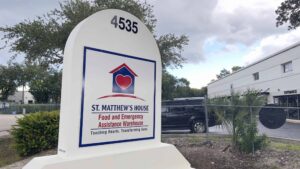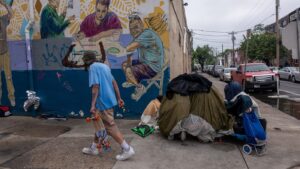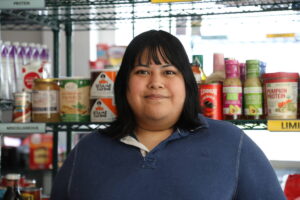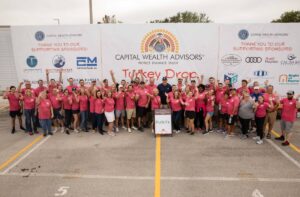by Eleni Patitsas, Manager of Agricultural Programs, St. Matthew’s House
The St. Matthew’s House’s Agriculture Program is not only growing vegetables; it is
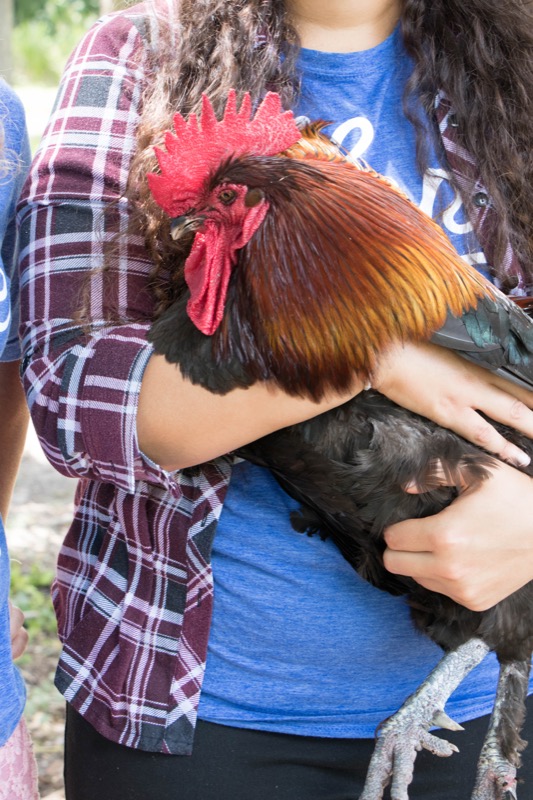
The Agriculture Program works to understand and heal all parts of the person achieving not just sobriety, but fostering a spiritual awakening. Agriculture offers the residents an alternative to classroom learning. In nature, one can learn about the Creator through Creation in a way that fully engages all the senses. Bees buzzing, sunlight catching leaf tops, and chickens plowing after tasty grubs, each glorifies God in a symphony, a liturgy according to its own kind. In Genesis, God created all of the foundations of the world, yet it was only after God created man and placed him in the Garden of Eden, that the Lord “saw everything that He had made, and indeed it was very good.” And so
The structure of the Agriculture Program complements the men’s and women’s programs, each in unique ways. At Jill’s Place, the ladies work together three times a week caring for the farm, land, and livestock on their property. Each resident is also assigned a chore area for which she is responsible: feeding chickens, supervising compost worms, watering the herb garden or greenhouse, and more. The women’s property boasts a moringa grove, various fruit trees, raised beds, herb garden, 18 egg-laying chickens, and plans are in the works to add dairy goats this fall.
Help support the life-changing work of St. Matthew’s House
At the Port Labelle Inn, the men involved with the Agriculture Program work 5 hours 5 days a week in addition to morning-evening garden chores. The Port Labelle Inn farm features a stacked hydroponic system with a 2,000+ plant holding capacity, worm bins, over 40 raised beds, herb garden, tropical tree food forest, Macadamia orchard, and access to the Oxbow, an offshoot of the Caloosahatchee River. All produce harvested is weighed and taken into the kitchen to be prepared by the men involved in the culinary ministry and Sprout Catering for service to residents and Sprout customers.
All the men and women involved with agriculture participate in an 8-week course known as the Basic Agriculture Curriculum with the opportunity to earn a certification. This course covers the basics of agriculture, plant anatomy and care, beginner design principles, and an introduction to season and system thinking. Advanced students have the opportunity to take on leadership roles within the Agriculture Program by becoming mentor-teachers to new students.
And what are the men growing? Lettuce, onions, kale, peppers, tomatoes, beets, cabbages, corn, sweet potatoes, to name a few! More unique plants that are giants in the super-food and health world are growing too, like moringa, Katuk, longevity spinach, Chaya, and cranberry hibiscus. These perennial greens hold a lot of potential in being able to deliver nutrient dense food to the residents and wider LaBelle community in the slower summer months. These less well-known foods can be harvested year round, even through the hot, humid summer when few of the classic vegetables can grow. Certain parts of both properties have permaculture design elements with food forests and natural resource utilization and simple solutions incorporated into the farm designs.
Often without realizing, men are learning valuable skills and restoring self-confidence. Self-esteem is built with action, not with praise. “I grew this,” a woman beams with pride as she sets down a salad on a table to share with others. She then proceeds to tell the group about each ingredient. “Composting is amazing” a man announces as he goes into the details of how composting works, what ratio of materials are needed, and excitedly describes how each material was collected on site at the Port Labelle Inn for free. Examples like these show that residents are learning not just gardening information, but also important life lessons. In the latter case, one learns that materials seen as “waste” can be utilized and given a new life. This kind of lesson particularly poignant for our residents—many of whom often struggle to see themselves as worthy of love or as someone who can be useful to society.
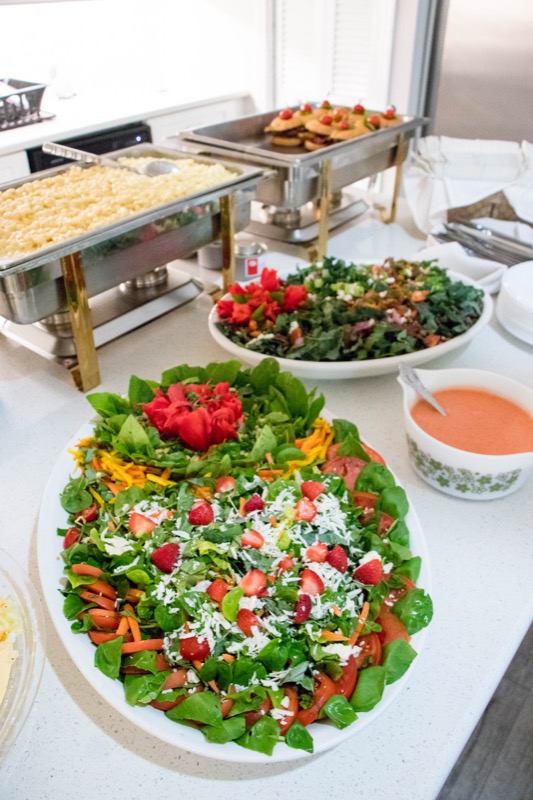
Working outdoors also provides the perfect framework for learning important life lessons. On the surface, recovering men and women are working the land. However, below the surface, they are cultivating their own lives and learning to be good stewards of what they were given. Being outdoors surrounded by Creation brings its own kind of peace and refreshment. To a man or woman whose life may have revolved around the selfish, fast-paced, short-sighted world of drug use, time in the garden helps them see the world in a whole new way. Daily dedication, investing effort now for a payoff far in the future, working as a team, growing life rather than smothering it, learning about the very preciousness and miracle of life, fostering perseverance and integrity, and nurturing are all vital parts of the equation in caring for the life of a plant or animal. Many of the residents enter the program with strained relationships and families. The simple relationship of caring for a plant or farm animal allows residents to learn patience, compassion, and faithfulness and in turn, carry those virtues into their life ahead. It takes gentle, slow solutions to allow for growth in the men and women so that they can replace old habits with new.
It comes as no surprise then that research constantly seems to be pointing to increasing discoveries of the physical benefit that gardens and nature have on the human body. Time spent outdoors lowers stress, builds self-confidence, encourages physical activity, sharpens problem-solving skills, and allows for sweating chemical toxins out of the body. Soil microbes have natural antidepressant properties that work to boost cytokine and serotonin levels. Soaking sunshine’s Vitamin D from the source itself is also a plus! Many residents entering the recovery program are experiencing the physical toll that drug or alcohol dependency has done to a body. Often times, their immune systems have been weakened and the liver and heart have been damaged. Staying active through gardening increases circulation, which enhances the body’s natural self-healing process.
The Agriculture Program is also working towards a goal of producing 70% of the food needed by residents of the Justin’s Place Men and Women’s Recovery Programs, two shelters the Campbell Lodge, and the Immokalee Friendship House, and social enterprises like the Delicious by Design and Sprout Catering companies.
St. Matthew’s House welcomes home gardeners, nature-lovers, farmers, chefs, craftsmen, and anyone touched at heart by this ministry to visit the farms and learn more about supporting the Agriculture Program.



